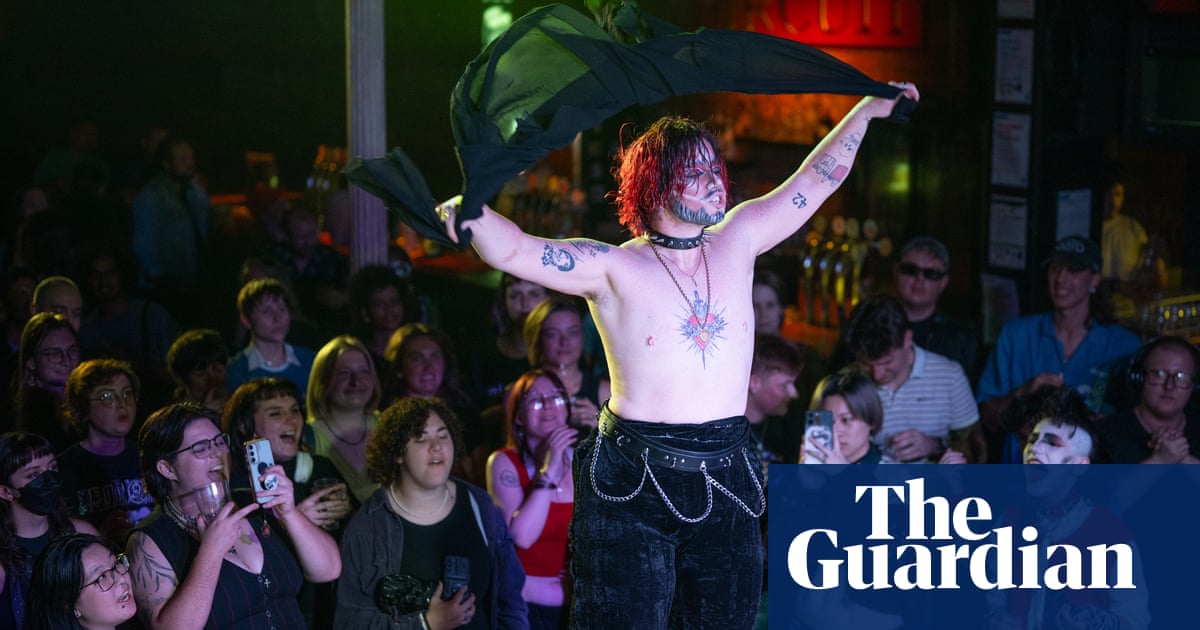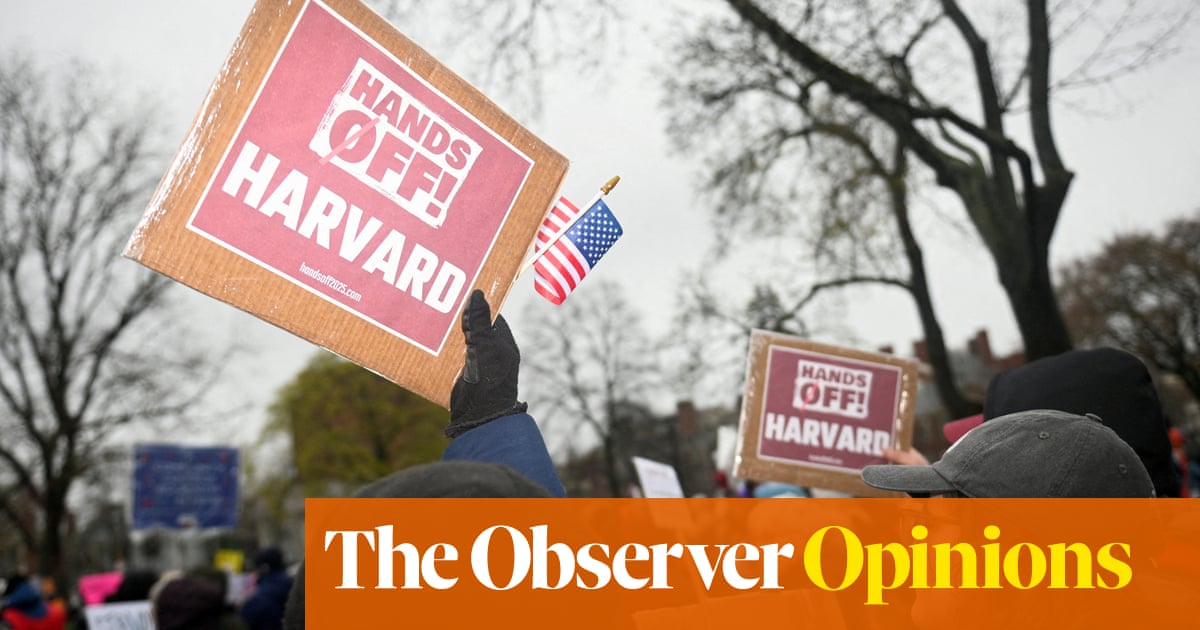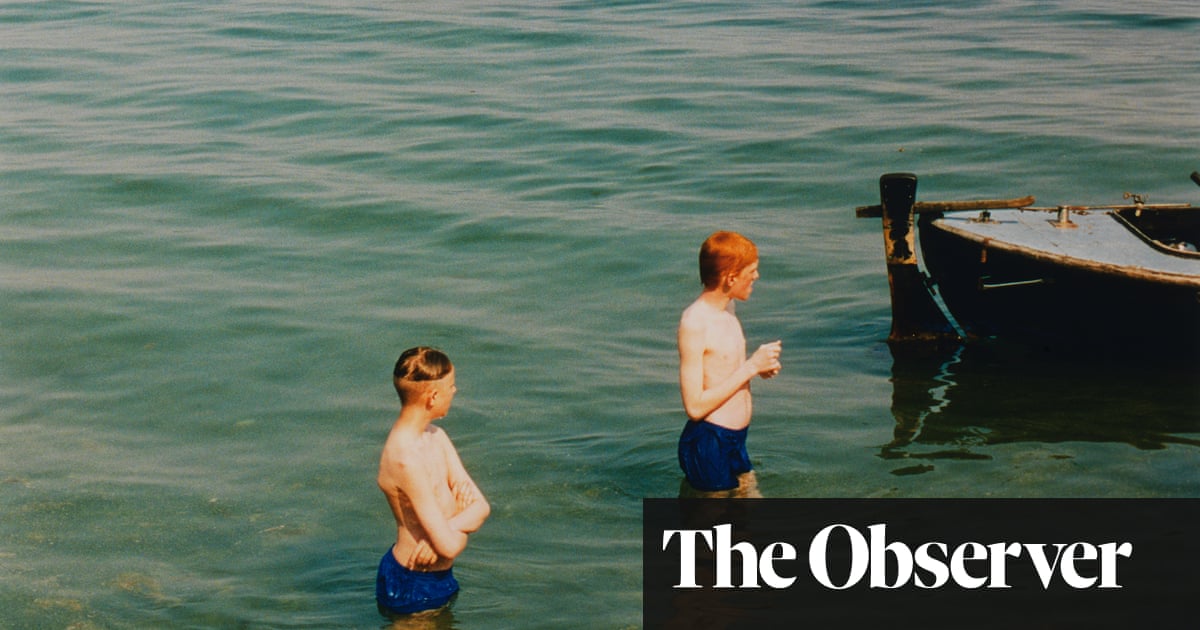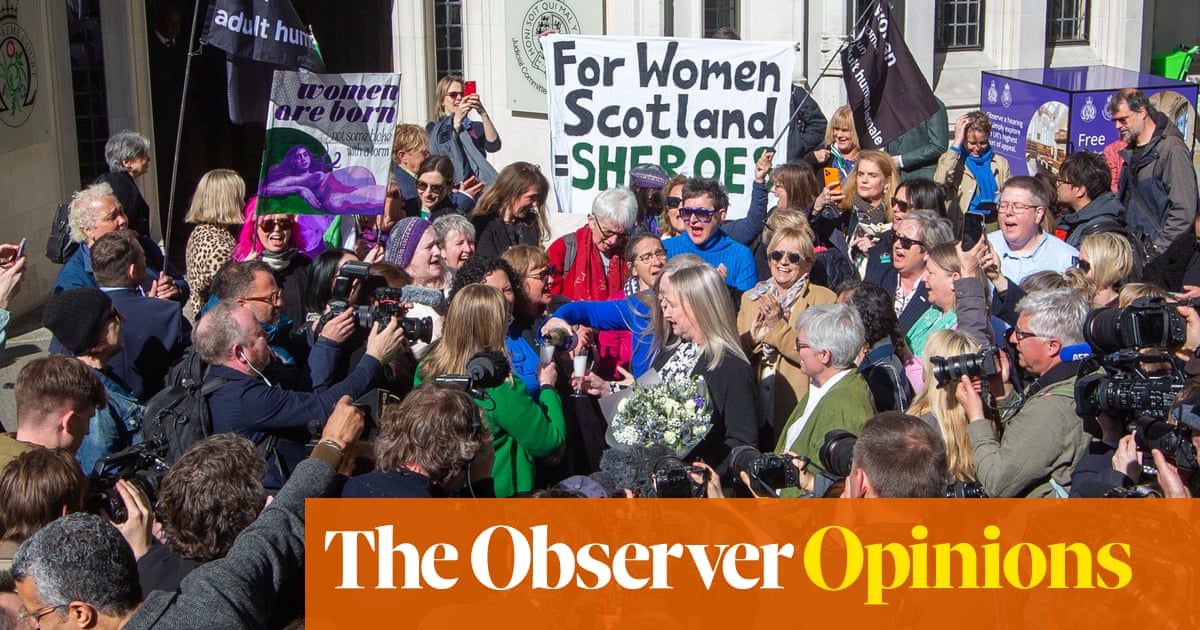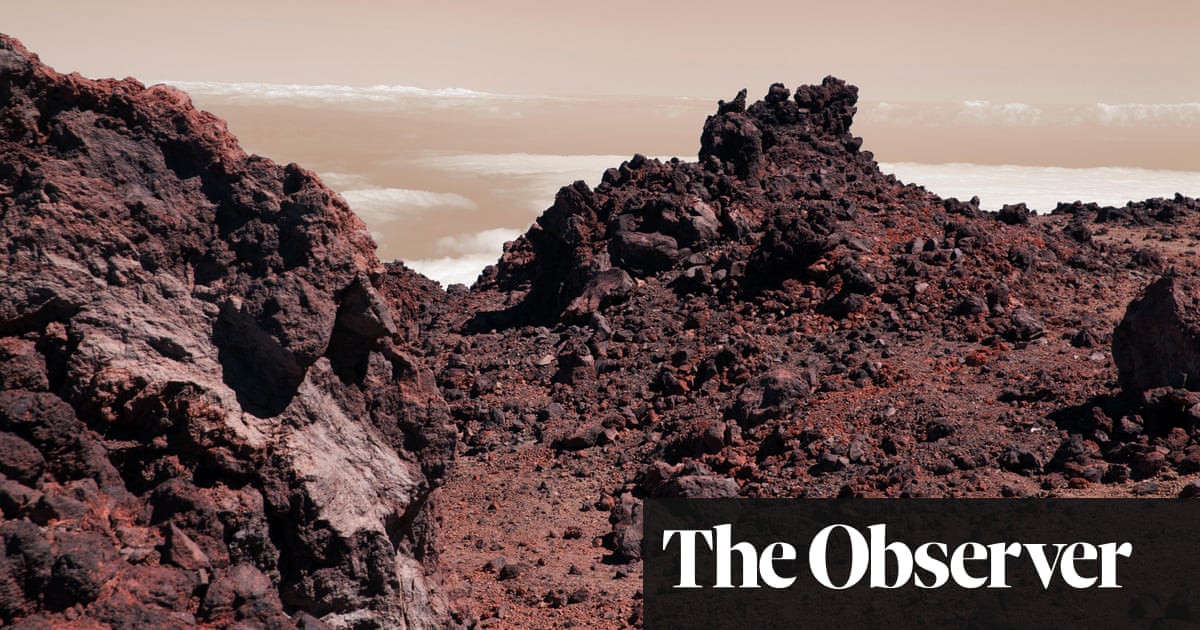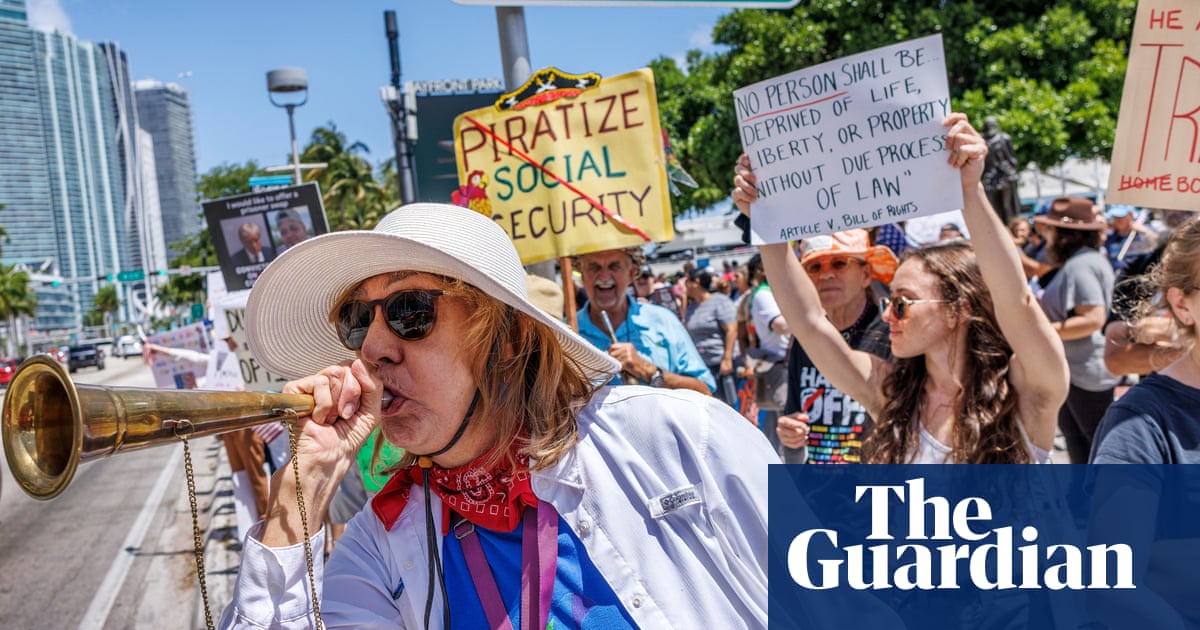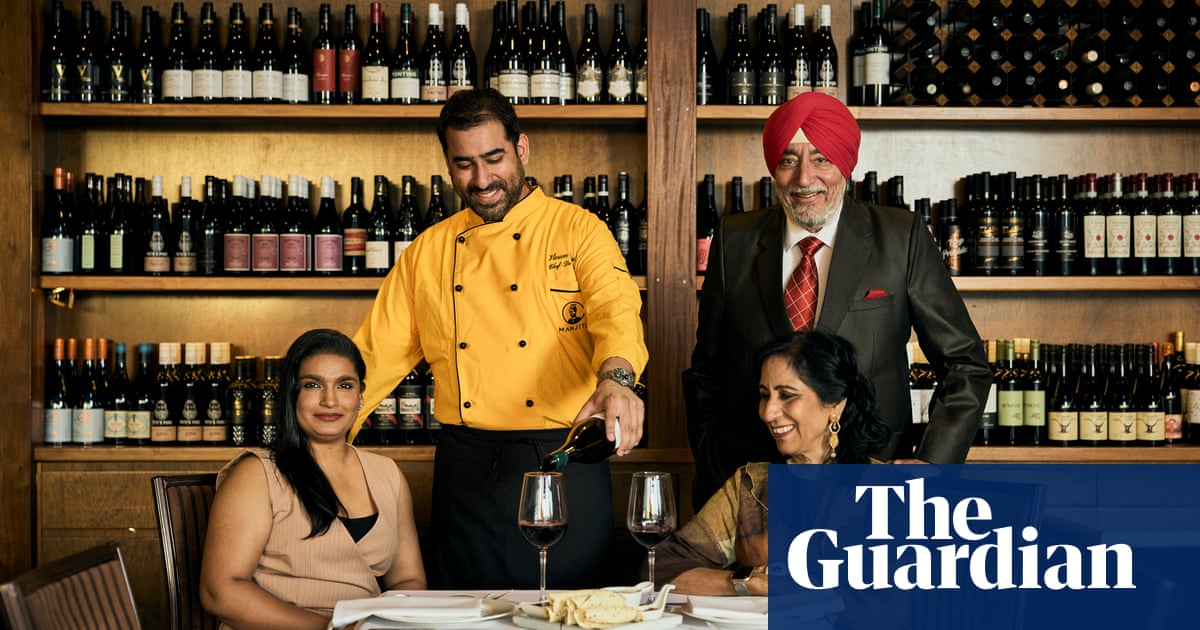Niue, also known as the Rock of Polynesia, is one of the tiniest island states in the world. It takes a mere two hours to drive around it, giving views of its rugged limestone cliffs and occasional sandy coves. These coves give way to caves and chasms, once used for storage, burial sites and even as living spaces. But perhaps what visitors seek most are its crystal clear waters, home to spinner dolphins, eels, grey reef sharks, sea snakes and humpback whales.
Now the island is engaged in an innovative plan to try to conserve these vast and pristine territorial waters. The scheme, which has been running for a year, involves selling off sponsorship of the ocean surrounding the island to individuals or companies for NZ$250 (£116) a square kilometre. So far, it has raised NZ$7m, nearly halfway to its target.
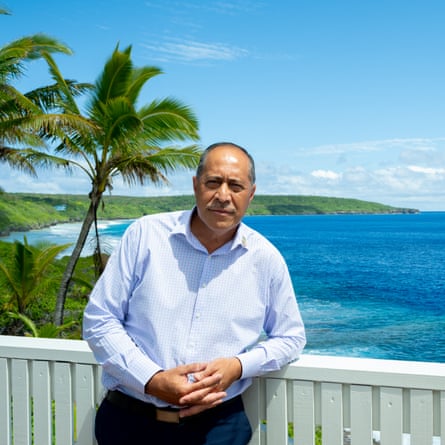
The idea is that this sponsorship will help to fund management of the ocean, including dealing with maritime security, bolstering climate resilience and conserving marine life in the island’s Moana Mahu marine protected area (MPA). Some of the money will be used to help support local people – for example fishers and their families – where the restrictions needed for ocean conservation may impact on their income. It comes at a time when Pacific islands on the frontline of the climate crisis are struggling to deal with the impact and cost of rising sea levels.
“Ocean conservation is part of Niueans’ DNA,” says Niue’s prime minister, Dalton Tagelagi. “We inherited it [the land and sea] from our forefathers. What we enjoy today is what we inherited from the past, and we are going to make sure that continues.”
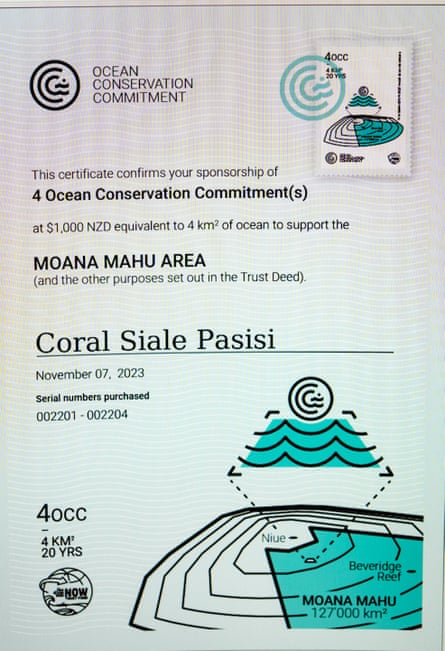
It is lunchtime for Daryn Magatogiia, 32, who is tinkering with some old boats in the department of agriculture, forestry and fisheries’ workshop. As well as being a fisher, he works for the department, handling tasks including supporting marine operations and compliance and enforcement at sea.
As a resident Niuean, Magatogiia, along with the rest of the population of about 1,700, has had the sponsorship of one square kilometre of the ocean paid for by the government. He says he takes pride in the fact that he can pass it on to his children and grandchildren.
“I can’t imagine work that isn’t connected to the ocean,” he says. “Ever since we were little, the ocean has been a part of our lives. We need it for food security and recreational activities.”
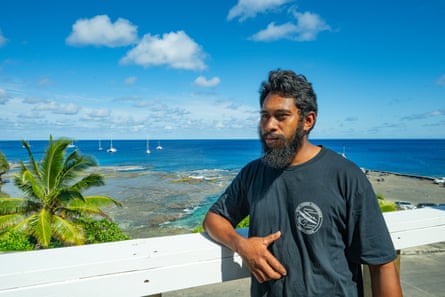
Despite New Zealand’s proximity to Niue – it is 2,400km (1,500 miles) away – Magatogiia has no desire to try life elsewhere. “I love it here. There’s more freedom on the island,” he says.
Tourism has been the main driver of economic growth for decades in the country, which had more than 8,000 visitors in the year to June 2024, according to the latest government data. This is about 30% lower than pre-pandemic levels, however, forcing the island to look for other ways to raise money.
The ocean is a vital part of the lives of the small population, and the citizens of Niue were part of the consultation in the development of their Ocean Conservation Commitment (OCC). It is locally driven, in contrast with many marine conservation projects in the Pacific that are led by international organisations.
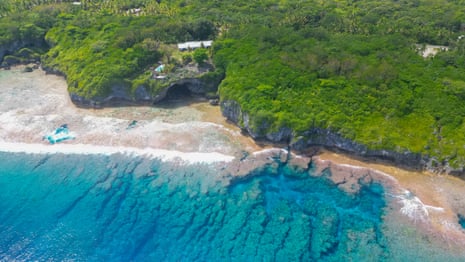
Coral Pasisi, president of Niue Ocean Wide, a charitable trust that handles donations and the OCC initative, says the idea is not akin to selling property. “We are not selling real estate,” she says. “That is why it’s a sponsorship of one square kilometre rather than the full cost of a square kilometre. It is subsidised because the government will continue to manage and pay for resources.”
Sponsoring a square kilometre does not equate to owning a specific part of the MPA, she says. “You become a guardian of Moana Mahu when you sponsor one OCC, but it doesn’t correspond to a particular area; it’s part of our collective effort.”
The sponsorship certificate can be given to a family member, friend, or anyone the sponsor chooses, and features the sponsor’s name and serial numbers to ensure that no one sponsors the same area twice.
There are 127,000 OCCs available and the island is hoping to raise NZ$18m from the scheme, launched in September 2023. Conservation International and Blue Nature Alliance are among the large outside organisations that have signed up as sponsors.
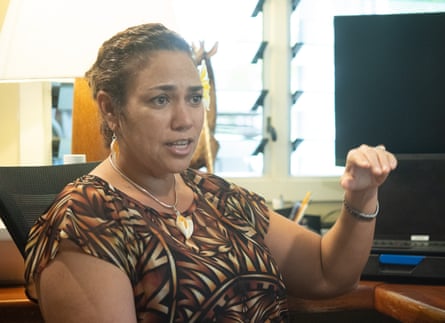
Tagelagi says the decision to go ahead with the initative was motivated by a need to ensure the islanders have the financial resources to fight the worst effects of the climate crisis and protect the surrounding ocean.
“It is something different from the normal channels of going to global funds and organisations [for money], and that is because we know the difficulty of accessing those funds,” he says. “This is our initiative and we are proud of it.”

 3 months ago
64
3 months ago
64





